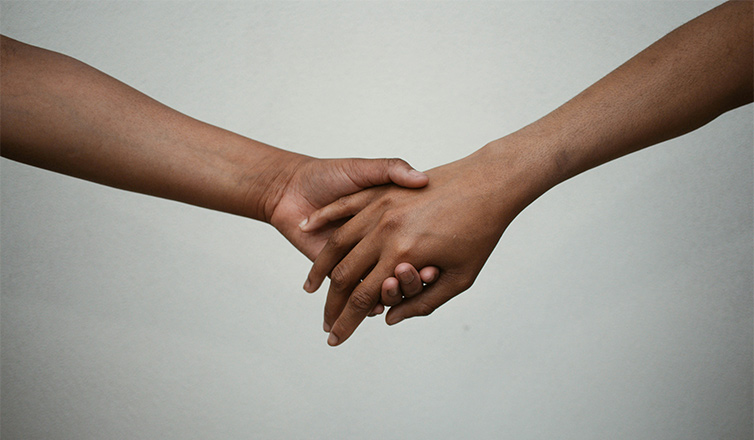Julieanna Castellanos’ grandfather passed away from amyotrophic lateral sclerosis (ALS) when he was 68 years old. She remembers her family members caring for him and the round-the-clock care he needed at times. Those memories led her to her role with the ALS Association as a Community Programs Manager offering a variety of support groups to family caregivers.
“About 96% of all caregivers are family caregivers, so it’s vital they have the support they need,” explains Castellanos.
At our monthly ALS Clinic , we bring in a comprehensive group of specialists to meet with patients and their families, including people from the ALS Association like Castellanos who can connect patients and family caregivers to support groups.
“We offer our ALS patients a place to come and see several specialists at one time such as a physical therapist, respiratory therapist and speech language pathologist.” says ANC nurse practitioner Casey Kafena. “In addition, we know supporting the family caregivers is a big part of making sure the patient has quality care.”
Advice for Family Caregivers
When a loved one is diagnosed with ALS or another neuromuscular condition, it’s important both the patient and the family caregiver work with the physician to understand the condition, the symptoms and what could lie ahead. Castellanos offers family caregivers five pieces of advice:
- Have the most open communication possible with the patient. – Both the caregiver and the patient need to work together daily to make sure they are communicating openly with each other even when it’s challenging.
- Surround yourself with a community that will help you when you need a break. – Every family caregiver will need a break from time to time. It may be a needed physical break or an emotional break. Connect with someone who can step in when necessary to offer a bit of respite.
- Find a purpose in the journey and offer your loved one some sort of independence. – Help your loved one with a neuromuscular condition pinpoint something that motivates him or her to face each day. It may be planning a trip, advocating for research or patient care, or something as simple as caring for a pet or plant.
- Care for yourself and don’t isolate yourself with the patient or from the patient. – Stay connected to outside family, friends and support groups who can help you not feel alone in your journey.
- Know your limits and be honest with your loved one about it. – Sometimes all family caregivers have to ask for help. If you don’t set boundaries to care, you could run the risk of burnout and that would seriously affect your ability to care for your loved one with a neuromuscular condition.
Being a family caregiver of a loved one with a neuromuscular condition can be a fulfilling yet demanding role. The dynamics in the family relationship can change quickly and become challenging if the caregiver and patient don’t collaborate and communicate. We offer our patients resources for family caregiver support and point them toward groups in which they may find help.
To learn more about Austin Neuromuscular Center, our ALS clinic, what we treat, and our clinical research, click here or call (512) 920-0140. Follow us on Facebook, LinkedIn, Twitter, and Instagram for updates.
*Photo courtesy of Ruthson Zimmermon
